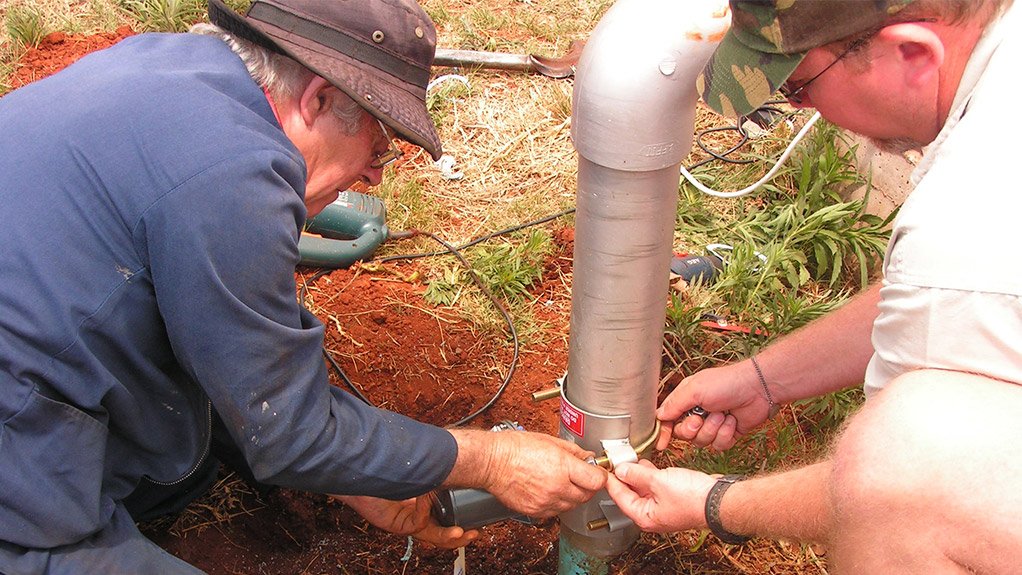
IRRIGATION METERING Farmers install a water irrigation meter to measure water volume and patterns of use to reduce water and electricity costs
While irrigation water measuring is not widespread in South Africa, water meters are becoming increasingly important tools to aid farmers in reducing water and associated electricity costs, says Water Research Commission (WRC) Water Utilisation in Agriculture executive manager Dr Gerhard Backeberg.
“Measuring and metering of irrigation water will boost farmers’ profits and improve the regulation of agricultural water use in South Africa. The financial returns of an irrigator are strongly correlated with the volume and pattern of irrigation water application, not only through the cost of water, but also that of electricity,” he says
.Further, there are a number of new tech-nologies that offer high-quality information and decision support to irrigators, making water-use management more convenient and accurate for farmers.
The Department of Water Affairs (DWA) has also announced its intention to publish new regulations for river, irrigation scheme and farm water measurement, which could see strict enforcement of water metering, he emphasises.
Irrigation water use measuring to manage costs will expand in future, given the correct incentives of volumetric water-use charges that are aimed at recovering operation and mainte-nance costs for water supply, says Backeberg.
“While the enforcement of regulations for water measurement will ensure compliance, this should be seen as a last resort because irrigation water measurement is good business practice,” he notes.
The WRC’s guidance for sustainable on-farm and on-scheme irrigation water measure-ment report, cofunded by the Department of Agriculture, Forestry & Fisheries, facilitated a process to effectively implement water measurement at river, irrigation scheme and farm level in South Africa.
Specific attention was given to technical requirements and financial justification for implementation of the technologies for water measurement.
The result of this technology transfer project is a report that documents the implementation process, the lessons learnt and guidelines towards general implementation of irrigation water measurement.
“This project again highlighted the need to use different communication channels to disseminate available knowledge, allow pro-gression of time from awareness to persuasion to implementation and ongoing adaptation. It also recognises the role of demonstration for observing and evaluating the benefits of irrigation water measuring,” says Backeberg.
The WRC will now find partners to exploit and disseminate the available knowledge, including of correctly managed implementa-tion, and technologies on irrigation water measuring and metering. For this purpose, a short-term research project will be initiated later this year with a team comprising sectoral representatives, such as the South African Irrigation Institute, the Agricultural Research Council, AgriSA and the South African Association of Water User Associations.